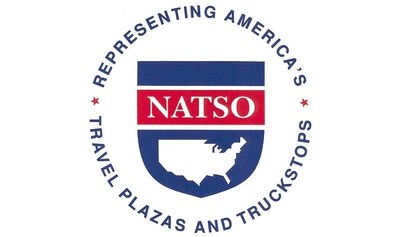Subjects: SVY, EXE, AVO, ESG
NATSO, SIGMA URGE ENERGY DEPARTMENT TO ADOPT MARKET-ORIENTED, TECHNOLOGY NEUTRAL APPROACH TO TRANSPORTATION DECARBONIZATION
Policies to Scale Sustainable Aviation Fuel Should Consider Ramifications on Existing, Low-Carbon Fuel Options
ALEXANDRIA, Va. , Nov. 3, 2023 /PRNewswire/ -- NATSO, representing travel centers and truck stops, and SIGMA: America's Leading Fuel Marketers, urged the U.S. Department of Energy (DOE) to adopt a market-oriented, technology-neutral approach to transportation decarbonization. Any policies to scale production of sustainable aviation fuel (SAF) should carefully consider the economy-wide ramifications of prioritizing nascent fuel technologies above longstanding lower carbon fuel options, such as biodiesel and renewable diesel.
Fuel retailers and marketers appreciate that the Biden Administration is prioritizing alternative fueling strategies to reduce carbon emissions from transportation. But the Administration's approach to increasing SAF production ignores harmful side effects to the existing refueling landscape. NATSO and SIGMA responding to a request for information urged DOE to harness the decarbonization benefits of renewable diesel and biodiesel, rather than pursue policies that will destroy demand for over-the-road biofuels that have been reducing ground emissions for decades.
"The Biden Administration should not surrender the market's ability to deliver dramatic near-term emissions savings by imposing a top-down, hurried transition to one technology," NATSO and SIGMA wrote in their comments to the Energy Department. "The Administration should harness the near-term decarbonization potential of low-carbon options like biodiesel and renewable diesel, in addition to incentivizing more aspirational longer-term technologies."
Preferential treatment for SAF for reducing transportation carbon emissions will unravel decades of existing carbon reductions in over-the-road transportation while increasing fuel prices for commercial fleets.
SAF is more energy intensive to produce and saves less carbon emissions than renewable diesel, according to a research study conducted by LMC International, titled "Comparative Economic Analysis of Renewable Jet Fuel and Renewable Diesel." Because these fuels compete for the same feedstock, prioritizing SAF will undercut and eventually eliminate America's biodiesel and renewable diesel market as disproportionate pressure is placed on feedstock.
The trucking industry delivers more than 80 percent of America's goods and relies on biofuels, including renewable diesel and biodiesel, to dramatically reduce carbon emissions. Biofuels represent the best opportunity for reducing carbon emissions from the nation's existing commercial fleet of trucks for the foreseeable future.
Biodiesel and renewable diesel eliminated 15 million metric tons of CO2 in California alone in 2020, the equivalent of taking more than 3 million passenger cars off the roads. Compared with petroleum-based diesel, renewable diesel and biodiesel reduce greenhouse gas emissions by up to 80 percent. The California Air Resources Board recently underscored their important role in reducing carbon emissions, announcing that renewable diesel and biodiesel constitute more than half of the diesel supply in California.
By implementing strategies that promote parity between over-the-road and aviation renewable fuels that compete for the same feedstock, the Administration has an opportunity to lower the cost of fuel for trucking fleets and commercial drivers and ensure fuel market stability while advancing its goal of reducing transportation's carbon footprint. One such strategy is for the Department of Treasury to subject SAF to more stringent lifecycle greenhouse gas emissions modeling requirements under the tax credits enacted under the Inflation Reduction Act (IRA).
NATSO, SIGMA Comments to the Department of Energy
About NATSO and SIGMA
NATSO is the trade association of America's travel plaza and truckstop industry. Founded in 1960, NATSO represents the industry on legislative and regulatory matters; serves as the official source of information on the diverse travel plaza and truckstop industry; provides education to its members; conducts an annual convention and trade show; and supports efforts to generally improve the business climate in which its members operate. For more information, visit NATSO.com. Contact: Tiffany Wlazlowski Neuman, Vice President, Public Affairs.
SIGMA: America's Leading Fuel Marketers represents a diverse membership of approximately 260 independent chain retailers and marketers of motor fuel. While 67 percent are involved in gasoline retailing, 83 percent are involved in wholesaling, 56 percent transport product, 39 percent have bulk plant operations, and 20 percent operate terminals. Member retail outlets come in many forms including truck stops, traditional "gas stations," convenience stores with gas pumps, cardlocks, and unattended public fueling locations.
Contact: Tiffany Wlazlowski Neuman Vice President, Public Affairs
SOURCE NATSO, Inc.
These press releases may also interest you
|
News published on and distributed by:




